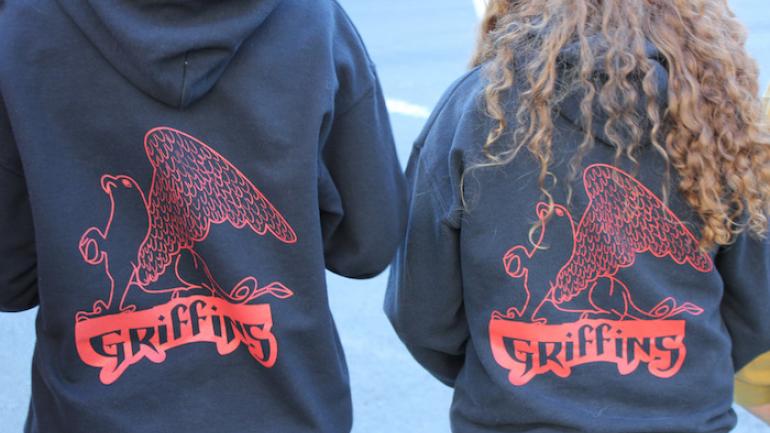
On Wednesday, December 5, 2013, eighth graders in one of Gateway Middle School’s new Peer Leadership classes took to the streets of the Tenderloin to offer food to anyone who might be hungry. It was the students’ first team project. When discussing options for the class’ collaborative works, coordinator Mwapagha Mkonu encouraged students to choose something that mattered to them personally. Less than two weeks later, 10 eager and willing young people headed out into a clear, frigid morning ready to give back to their own community.
The Peer Leadership class for eighth graders debuted in the second quarter of this school year. It was the brainchild of Mr. Mkonu, with a healthy dash of Assistant Principal Chad Slife’s community-building philosophy, and based on Mr. Mkonu’s years of working with youth. Experience told him that children want and need to learn what drives and motivates them in the world. He believes that sense of identity is what can keep kids out of gangs and away from other violent outcomes.
“Some of the Peer Leadership skills mirror those that we teach in the high school,” says Mr. Mkonu. “I mean, ideologically, we’re on the same page. But because the students are much younger in the middle school, the focus is on earlier developmental issues like core communication skills – how to get your point effectively across and how to get information effectively from the other person.”
The course focuses on creating well-equipped, qualified student advocates. Through group work, discussion participation, and self-reflection (including journaling), students assess their own communication styles, strengths and weaknesses. Together, they practice leadership skills. The end goal is to dispatch the students as conflict mediators, advocates for bullying prevention, and peer educators. The students may also be paired with a younger student in a buddy/support role. The eighth graders are part of the pilot program, which will eventually be built out for all grades to cover different skills and needs.
“We’re trained to focus a lot on the negative,” maintains Mr. Mkonu. “In class, we started to talk about media and relationships - how interactions are often born out of things to fix. I mean, what if there were a lot less to fix in the first place?”
Peer Leadership curricula are backed by research that shows adolescents are more apt to retain relational information when delivered from their peers rather than from adults. With this, Mr. Mkonu let the students direct the class, and each other, more so than in other academic settings. While collaborative project work and peer-to-peer skills were slated for the second semester, both classes decided they wanted to take on a group project. One group wanted to feed the homeless, and the other created a clothing and food drive for typhoon relief in the Philippines.
Before departing to the Tenderloin with bags full of sandwiches and quesadillas, Mr. Mkonu gathered his students in a community circle and briefed them on what to expect. “When we get there, I want you guys to fan out. Keep the group in your sights, but don’t be afraid to reach past your comfort zone. Let’s give away everything we’ve got.”